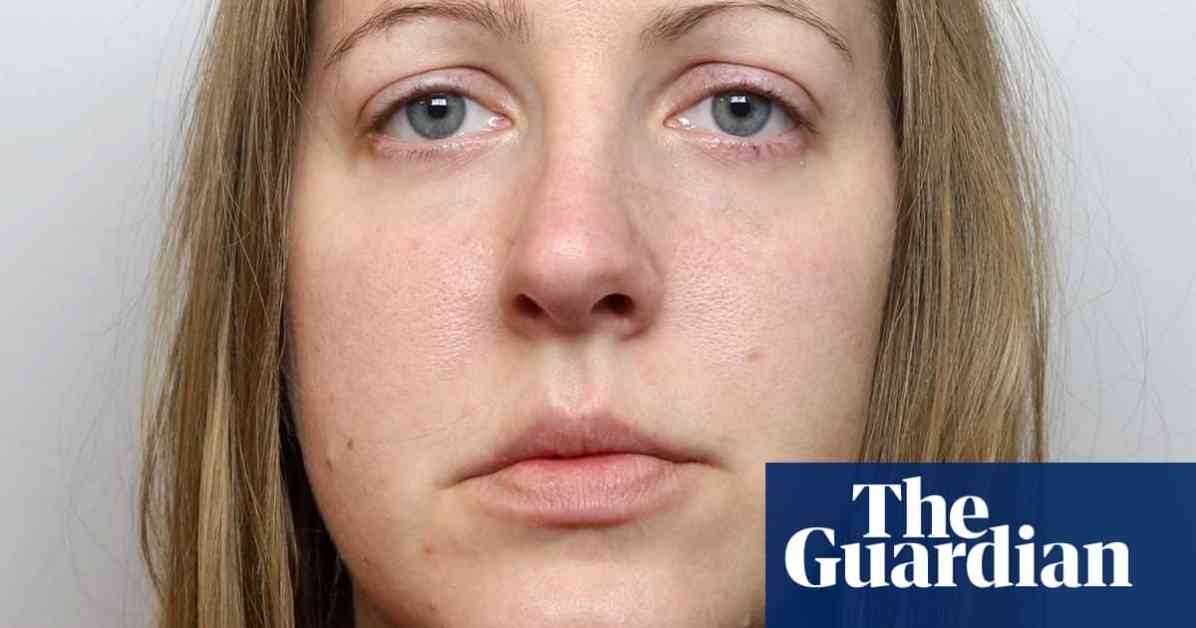Experts Call for Postponing or Changing Lucy Letby Inquiry to Ensure Investigation Success
A group of prominent neonatal experts and professors of statistics in the UK have raised concerns about the public inquiry into the case of Lucy Letby, a former neonatal nurse convicted of murder and attempted murder. In a private letter to government ministers, the experts have recommended either postponing the inquiry or changing its terms to ensure a comprehensive examination of the circumstances surrounding the case.
The concerns stem from the narrow focus of the inquiry, which the experts fear may prevent important lessons from being learned about potential negligent deaths that were mistakenly presumed to be murders. The public inquiry, led by Lady Justice Thirlwall, was initiated following Letby’s conviction for the murder of seven babies and the attempted murder of six others at the Countess of Chester hospital (CoC).
However, the inquiry was adjourned pending Letby’s retrial on one of the charges on which the original jury could not reach a verdict. Following her conviction for the attempted murder of another baby in the retrial, Letby’s application to appeal the verdict is pending. Despite the convictions and subsequent court decisions, a growing number of experts have expressed concerns about the evidence presented during the trials, suggesting that Letby’s conviction may be unsafe.
The group of experts, which includes 24 signatories, have highlighted the need for a more thorough examination of the case to ensure patient safety, improve healthcare management, and prevent miscarriages of justice in complex medical cases. The signatories, who come from diverse backgrounds in healthcare and academia, have independently reviewed the Letby case and stressed the importance of conducting a comprehensive investigation based on scientific analysis rather than emotional reactions.
Proposals for the Inquiry
The experts have put forward two proposals in their letter to the health secretary and justice secretary. The first suggestion is to temporarily pause the public inquiry to allow for further investigation and to address wider professional concerns. The second proposal is to amend the inquiry’s terms of reference to enable a broader examination of potential factors contributing to the increased neonatal deaths, without presuming criminal intent.
The lead signatories of the letter, Dr. Svilena Dimitrova and Peter Elston, have emphasized that the goal is not to revisit the Letby case but to ensure that the inquiry is equipped to conduct a comprehensive and beneficial investigation for the future of neonatal care in the UK. Other experts who have signed the letter include prominent figures in neonatal care, statistics, and forensic science, all of whom share the common goal of improving patient safety and healthcare practices.
Challenges in the Case
One of the key challenges highlighted by the experts is the assumption of criminal intent in the case, which may have hindered a full examination of potential alternative causes for the deaths. By focusing solely on Letby’s actions as a murderer, the inquiry risks overlooking important lessons about systemic issues within healthcare and the justice system. The experts argue that legal systems are particularly susceptible to errors when dealing with complex scientific evidence, especially in cases involving statistical anomalies and intricate medical details.
The experts have also raised questions about the accuracy of the evidence presented during Letby’s trials, pointing to discrepancies in the door swipe data from the hospital where the incidents occurred. The Crown Prosecution Service confirmed that the data relied upon by the prosecution to show Letby’s movements within the hospital was incorrect, leading to concerns about the reliability of the evidence presented in court.
Government Response
In response to the experts’ recommendations, a government spokesperson has emphasized the importance of the inquiry in reviewing all aspects of the case and addressing the failings across the NHS and regulatory bodies. The spokesperson noted that the terms of reference for the inquiry were developed following extensive engagement with stakeholders, including the affected families, NHS England, and the inquiry chair.
The inquiry’s main hearings are scheduled to commence in Liverpool on September 10th, with a focus on examining whether the hospital management should have taken earlier action to prevent Letby from harming babies in the neonatal unit. Despite the government’s commitment to proceeding with the inquiry as planned, the experts’ concerns highlight the importance of conducting a thorough and unbiased investigation to ensure accountability and prevent similar incidents in the future.
Conclusion
The case of Lucy Letby has raised significant questions about the justice system’s handling of complex medical cases and the potential for miscarriages of justice in healthcare settings. The experts’ call for postponing or changing the inquiry reflects a broader concern about the need for a more comprehensive and objective examination of the circumstances surrounding the case.
As the inquiry moves forward, it is crucial to consider the experts’ recommendations to ensure that the investigation is conducted in a manner that prioritizes patient safety, healthcare management, and the prevention of future tragedies. By addressing the systemic issues highlighted by the experts, the inquiry has the potential to not only uncover the truth about the Letby case but also to improve healthcare practices and accountability in neonatal care.


















